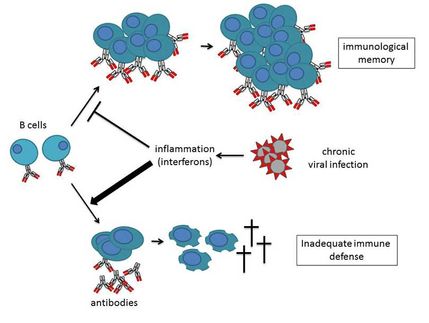Intercell's therapeutic Hepatitis C vaccine meets primary endpoints in Phase II
Data from 50 patients reveal statistically significant viral load reduction and favorable safety profile
Advertisement
Intercell AG (ICLL) announced the analysis of Phase II data for its peptidebased therapeutic hepatitis C vaccine (IC41) in an exploratory clinical study targeting treatmentnaïve Hepatitis C patients. The vaccine comprises five synthetic Tcell peptides and Intercell's firstgeneration polyarginine adjuvant (IC30). It is designed to stimulate Tcell responses against viral protein structures conserved throughout the major HCV genotypes, in order to reduce viral load in the blood of chronically infected patients.
The current study comprises 50 patients chronically infected with Genotype 1 of the Hepatitis C virus, which is known to be very difficult to treat with Interferon/Ribavirin standard therapy. The patients enrolled in the study have not received any other therapy and were given 8 intradermal injections of the IC41 vaccine in biweekly intervals for 14 weeks. This intensified vaccination schedule was derived from a recent optimization study aimed at improving the vaccine's Tcell immune response. The desired outcome of the ongoing study is the demonstration of a constant and sustained decline in HCV viral load that is increased by reiterative vaccinations during the treatment period.
"The new additional data obtained from our phase II study have confirmed and consolidated the encouraging trend seen in our previous interim analysis and thus, will provide a strong base to further strengthen our HCV franchise and to accelerate our efforts towards obtaining an HCV therapeutic vaccine, which could be a most valuable component in a combination treatment for HCV", states Alexander von Gabain, Chief Scientific Officer of Intercell. In the current analysis, 50 patients have been enrolled. The data obtained show that the primary endpoint set for this study, namely a statistically significant sustained HCVRNA decline, has been met.
In the second week after the final vaccination, a 40% reduction of viral load was observed in comparison to the baseline prior to vaccination. The therapeutic effect of the vaccine on the viral load is small, but found to be significant when data were submitted for rigorous statistical analysis (p=0.0010). The results are especially significant in the light of the observation that viral load reduction is increasing with the number of vaccinations. The study included patients with various levels of viral load. In the subset of patients (N=25 with high viral load (> 2 million copies/ml) before 2 treatment, a more pronounced average decline of 60 % (0.4 log) was achieved with statistical significance (p=0.0001).
Although options for the treatment of chronic Hepatitis C with Interferon/Ribavirin have improved, treatment will remain very difficult and a significant unmet medical need, especially in the case of Genotype 1. Immunotherapies, and possibly therapeutic vaccines, might become an option in the arena of existing and future HCV combination treatments. Thus, Intercell and its codevelopment partner for therapeutic Hepatitis C vaccines, Novartis, will define a further development strategy that will also take advantage of an enlarged antigen portfolio and of IC31®, Intercell's secondgeneration adjuvant that has recently demonstrated the generation of Tcell responses, in human vaccine trials, to a level not yet seen for other known adjuvants.



























































